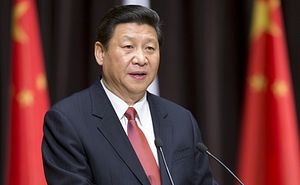China’s Central Economic Work Conference in Beijing is normally one of the main events for those trying to analyze Beijing’s views on China’s economy, what direction policy is going to take, and generally how the world’s second largest economy is going to be run.
Occasionally the results of the Central Economic Work Conference have had dramatic effects. For example, in 2007 the conference surprised many by including no policies designed to prop up floundering stock market valuations, which signaled to investors in China’s stock bubble that the good times were over. Valuations held for only a few weeks more before collapsing throughout the first half of 2008.
This year however, the Central Economic Work Conference was entirely overshadowed by the great interest and hype surrounding China’s Third Plenum – the results of which still have analysts disagreeing dramatically. The focus on the Plenum this year is understandable, since the policies under consideration reach further both in scope (not just economic), but also in timeframe (the Central Economic Work Conference is an annual event focused on just one year’s economic goals).
Indeed, for most of the years since 2007, the tasks set forth by each annual conference highlighted in the official statements have included a very similar mix of main phrases relating to improving macroeconomic policies, maintaining stable economic growth, maintaining social stability, improving people’s living standards, and promoting economic transformation/restructuring/reform; these have been supplemented with a mix of less often repeated phrases about improving rural incomes, increasing living standards and a few other topics. So similar is the wording each year that many watchers are reduced to analyzing adjectives and the grammar of the statements for clues as to any policy changes. Words such as “fast” and “moderate” for example can lead to quite different conclusions about government policy direction.
This year, the main language of conference included the usual words about maintaining “reasonable” growth so that reforms can be promoted.
However, there was also a special focus on the issue of local government debt, which has been weighing on the minds of some observers for years already. According to the statement (available here in Chinese) released after the conference, “controlling and defusing” local government debt risks will be an “important economic task” for the coming year. This issue is the third major point outlined in the statement, coming behind the more easily achieved and general goal of “protecting” the country’s grain security (#1), and the painful task of tackling “overcapacity” in the country’s industrial structure (at #2).
Most agree that the key to tackling local government debt buildup (not the debt that already exists, which is a different matter) will be reforms to the incentive structure that motivates local government economic behavior, as was considered in a recent post in The Diplomat’s China Power blog.
For the local government debt problem, as with the second goal pertaining to industrial overcapacity, the crunch will come when (and if) the process of achieving these targets starts to weigh on growth, and more importantly, employment. Whether or not this happens will depend on how these processes are implemented, but it is clear that these two issues could have a negative impact on headline GDP growth.

































